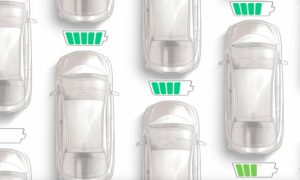Price increases have been the defining characteristic of this past year. Prices of all kinds, including groceries, rent, electricity, and automobile fuel, have been steadily rising over the last several years. Consumers’ standard of living is being put in jeopardy, and firms are going under, and the economy is slowing down as a result. The increasing cost of energy is having an impact on even the largest and most well-known businesses today, and it is putting whole industries and sectors at risk.

But although this should have been a crowning moment for the electric vehicle industry, inflation poses a serious danger to EVs. Just take a look at California to see how even liberals are having second thoughts about the state’s future. This, however, is hardly an issue limited to North America. Concerned about inflation and the impact of growing energy costs on their operations, Germany’s business elite have sounded the alarm.
As the price of gasoline has increased, the allure of owning an electric vehicle has grown. However, according to The Guardian, “the price disparity has narrowed since recent increases in power prices—in Germany, by approximately a third compared to a year ago.” Here’s how rising energy prices in the current economic climate pose a danger to the future of electric vehicles.
Electric vehicle prices are rising at an unprecedented rate.
Building an electric car is too costly, even when accounting for inflation. According to a report by American management consultants Oliver Wyman in 2020, electric cars are 45 percent more costly to produce than automobiles with internal combustion engines. The epidemic and its knock-on effects on the supply chain issue have unfortunately only served to drive up prices. AlixPartners found that during the COVID-19 crisis, the cost of raw materials for EVs increased by more than 100%. An electric vehicle’s raw material cost averaged $8,255 in May of last year, up from $3,381 in March of 2020. Now, however, with inflation and semiconductor shortages driving up costs, electric vehicles are out of reach for most people.
Most car companies have recently dramatically raised pricing for electric vehicles. For instance, General Motors has added $6,250 to the cost of their electrified Hummer. Tesla, too, joined the trend. The Model 3 Long Range is now $57,990, up from $54,490, the Model Y Long Range is $65,990, up from $62,990, and the Model Y Performance is $69,990, all from Elon Musk’s firm. Long Range Model S with Dual Motor AWD now costs $104,990, up from $99,990. Customers can anticipate future price hikes as a direct result of the skyrocketing cost of electricity, which will drive up manufacturing expenses.
Inadequate Reputation in the Field
Consumers have formed a favorable impression of the EV industry so far due to the positive associations they have formed with concepts like sustainability and environmental consciousness. Buyers may begin to believe that manufacturers are greedy and only concerned with maximising their profit margins when sticker prices rise and more and more dealerships sell vehicles at prices higher than the manufacturer’s suggested retail price. Automotive giants GM and Ford have previously threatened to withhold popular models from dealers if the practice isn’t discontinued. Similarly, Hyundai and Genesis did the same thing.
Hyundai and Genesis are urging its U.S. dealers not to use “aggressive pricing techniques” such marking up prices “far over” the sticker price, which they claim hurts the company’s reputation.
As the market for electric cars continues to see price increases, buyers may get disenchanted and revert to purchasing vehicles with internal combustion engines.
Charging companies have less incentives to install new stations.
Profit margins for charging companies are being stretched as electricity prices continue to rise. And if they decide to raise costs, people may stop buying electric cars completely and go back to what they were driving before because of the higher pricing. As a result of falling revenue and customer numbers, charging network operators may opt to halt further growth for the time being. The shortage of charging stations in states like California will worsen as a result of this. The California Energy Commission (CEC) forecasts that the Golden State will need 1.2 million public EV charging stations by the year 2030.
If car companies anticipate a precipitous decline in demand for electric vehicles, they will not invest tens of millions of dollars in R&D.
Manufacturers will cut R&D spending as the electric car industry lags and profits drop. Accordingly, EV fans shouldn’t hold their breath for any updates or new additions to the present roster. Elon Musk’s Tesla has a commanding market share because to the company’s increased investment in R&D, and his rivals have little chance of catching up.
According to Electrek, Tesla invests more in R&D than any of its competitors in the car sector. StockApps.com reports that Tesla spends $2984 on R&D for every vehicle it manufactures, much more than the average of around $1,000 per vehicle.
Read Next- For the first time in four decades, the United States Army released a completely new vehicle.



